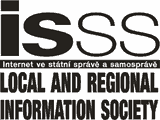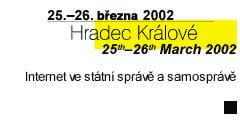|
|

|

|

|
Congress Centre ALDIS, Hradec Kralove, Czech Republic
One of the most frequent and most serious types of incidents that state and local governments face are ransomware attacks. This is a type of malicious software designed to encrypt, disable or severely restrict access to a victim’s data, devices or entire systems until the victim pays the required ransom. Another common form of cyber-attack is DDoS attacks, in which attackers attempt to disrupt or damage a website, network, or other online service by overloading it with large numbers of spoofed or unsolicited requests until performance is degraded, limited, or the service fails. Phishing is also one of the popular methods used by fraudsters to obtain a victim’s sensitive data or infect their device with malicious code. This type of attack often involves sending a fake email that looks like an official communication from the bank, asking for credit card information or online banking login details. Equally common is the inaccessibility of e-mail and filing services. NÚKIB recorded 38 incidents reported by local governments in 2020–2023 – 27 incidents from municipalities and 11 from regions. However, municipalities are not legally obliged to report incidents to the NÚKIB because they are not obliged to do so under the Cybersecurity Act, so these are statistics from voluntary reports, so the actual numbers may vary. “During the conference, and certainly not only in one forum, but on several occasions, the lively topic of the impact of both cyber-attacks and the upcoming regulation on local governments will be discussed, with regard to the difficulty and cost of appropriate or necessary measures, staffing options and, of course, experience in defending against specific attacks, as well as the overall preparedness of the authority,” says Vojtěch Dvořáček, programme director of the ISSS conference. 
|
||||

